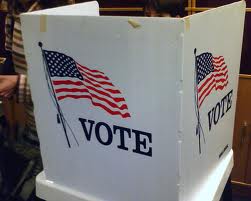 As a sophomore in college, I was convinced that being an evangelical Christian translated into voting a straight party ticket. Three years later, I am discovering that my faith precludes a blanket endorsement of any one political party. Hot-button legislative issues should not monopolize the Christian citizen’s voting agenda. As followers of Jesus, issues affecting people in the margins—the unborn, the aged, the refugee, the orphaned, the disabled, the poor, the oppressed—should always predominate as factors in our personal and political choices.
As a sophomore in college, I was convinced that being an evangelical Christian translated into voting a straight party ticket. Three years later, I am discovering that my faith precludes a blanket endorsement of any one political party. Hot-button legislative issues should not monopolize the Christian citizen’s voting agenda. As followers of Jesus, issues affecting people in the margins—the unborn, the aged, the refugee, the orphaned, the disabled, the poor, the oppressed—should always predominate as factors in our personal and political choices.
Hot-button legislative issues should not monopolize the Christian citizen’s voting agenda.
My spiritual and political transformation occurred during a summer in college when I simulated the urban poverty experience in Tampa, Florida, with InterVarsity Christian Fellowship. Here, I encountered a neighbor whose two part-time jobs were never enough to make ends meet after her husband of 10 years left her family. I met children hardened by life in housing projects; each could name a friend or family member killed by violence or drugs.
I also met a Christ who champions the cause of the browbeaten and the beleaguered throughout the book of Luke, continually charging listeners to seek justice and care for vulnerable people. After witnessing these desperate situations, I felt that Christians should combat poverty on every flank—through our churches, community service organizations, and our public policies.
As I prepare to vote now, I evaluate candidates largely by how their priorities and legislation in the past have either empowered or injured the people living in America’s margins. I calculate the benefits and weaknesses of new initiatives based on their effects on citizens who truly struggle to live in safety or make ends meet. The prophet Isaiah supplies us with a vision of a polity where homelessness and hunger are unknown, where “no more shall there be an infant that lives but a few days, or an old person who does not live out a lifetime.” These are the principles on which we should operate as Christians; this is the type of commonwealth we should pursue.
Beth Kearney was a public policy intern at Call to Renewal, a national network of churches, faith-based organizations, and individuals from across the theological and political spectrum working to overcome poverty in America.


